'The origins of the model of planned economic development adopted by independent India was a direct consequence of the war.'
'The war provided an opportunity for groups at the margins of Indian society to find new avenues for mobility.'
'The war also led to the emergence of India as a major Asian power and set the stage for it to play a wider role in international politics.'
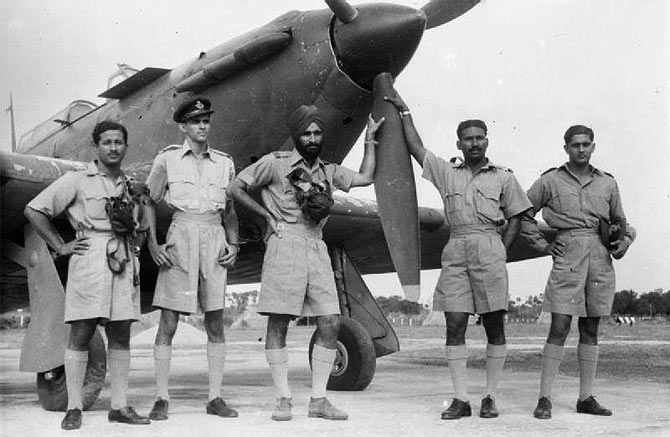
After spending six years as an infantry officer in the Indian Army, Srinath Raghavan took to a life in academia. Clearly, India's most important military historian, he has published three valuable books: War and Peace in Modern India and 1971, A Global History of the Creation of Bangladesh, apart from editing a stellar collection of the legendary historian Sarvepalli Gopal's essays, The Collected Essays: Imperialists, Nationalists, Democrats.
His latest book, India's War: The Making of Modern South Asia is a fascinating assessment of India's participation in World War II where 2.5 million Indian soldiers fought in different theatres of conflict.
A Senior Fellow at the Centre for Policy Research, one of New Delhi's leading think-tanks, Dr Raghavan was formerly a lecturer at King's College, London.
In an e-mail interview with Archana Masih/Rediff.com, he discusses why India's contribution in the Second World War has been ignored by historians, and what India needs to do to become a pivot for Asian security.
In spite of making such an enormous contribution to World War II, why has the Indian Army's contribution not been given the due it deserves? There have been a few books -- mostly personal accounts -- but no comprehensive accounts.
Why have Indian and foreign historians ignored India's contribution in spite of the plethora of books on WWII?
The Indian role and contribution has been neglected both by historians of WW2 and by Indian historians. The former remain focused on the major campaigns in Europe and East Asia. To be sure, the military outcome of the war was decided in these theatres.
But it is only gradually that historians are coming to see the war as a truly global conflict. Historians of India, for their part, have largely been uninterested in the Indian Army and, more generally, in studying war as a driver of historical change. Again, there some excellent exceptions to this, but the overall trend is unmistakeable.
You write that even under the Raj, India was recognised as a regional power. What accounted for India's unique stature even when it was subjugated under foreign rule?
The Raj was a sub-imperial system, arching from East Africa through to South-East Asia. Much of this territory had been captured or subjugated by the use of the Indian Army and had been under the direct or indirect control of the Government of India.
Few recall today that India was a separate signatory to the Treaty of Versailles and a founding member of the League of Nations. It was the only non-independent territory to have this status. This stemmed from a wider international recognition of India as a subordinate yet significant regional power.
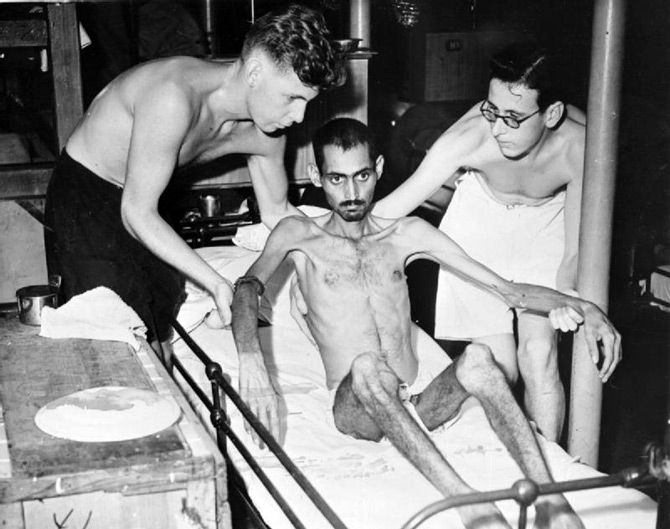
You also make the point about the limited telling of the stories and experiences of the 2.5 million Indian soldiers who fought the war in different theatres -- Europe, Africa, the Middle East, the Far East -- where did these stories disappear and why haven't they been documented like they should have been?
This is partly a consequence of the wider neglect by historians. And partly, because the newly independent States of India and Pakistan wanted to create distinctive 'national' narratives and preferred to slur over a period when the two armies had actually fought as one.
The 25 volume joint India-Pakistan official history of the war, however, remains an indispensable starting point for all serious students, but is lamentably neglected.
The premise of your book is that the South Asia of today is the product of India's Second World War experience and it continues to impact the region.
What are some of the biggest outcomes of WWII in South Asia? In what ways does it continue to impact us?
You can see the impact at various levels: Politics, economics, society and international relations. The Partition of the subcontinent to create Pakistan would have been inconceivable without the opportunity thrown by the war for the Muslim League.
The origins of the model of planned economic development adopted by independent India was a direct consequence of the war. The war provided an opportunity for groups at the margins of Indian society to find new avenues for mobility.
(Dr B R ) Ambedkar ensured, for instance, that the Dalits' participation in the war effort led to the first central government reservation for the scheduled castes. This was already in place before the Indian Constitution had begun to be drafted.
The war also led to the emergence of India as a major Asian power and set the stage for it to play a wider role in international politics. These are only some illustrations of the war's profound impact on South Asia.
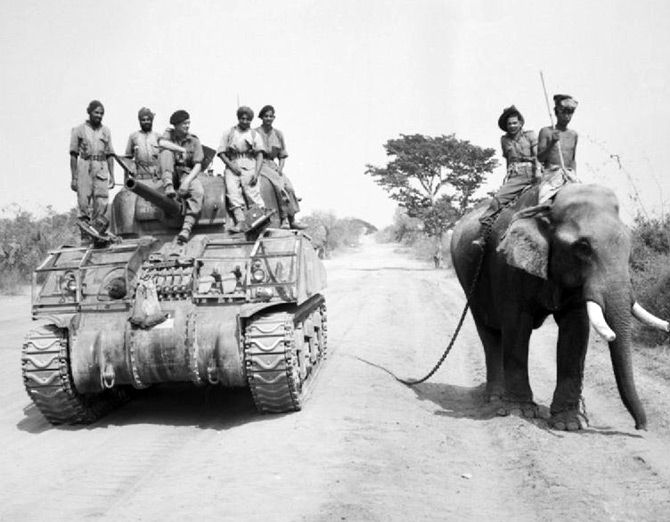
In an article last year you had written that a huge amount of ink has been spilt on the small Indian National Army, while the Indian Army -- which was a hundred times as large -- barely attracts attention.
While the Army has regiments and companies that go back to the World Wars, why has it not found champions to chronicle its role in WWII?
As I said earlier, the Indian Army has been neglected by historians for a variety of reasons. At one level, 'military history' is wrongly regarded as a conservative enterprise by the profession. At another, historians have found the army an uncongenial topic because it was an institution that buttressed the Raj.
Studying "collaborators" has been seen as less interesting and important than studying "resistors". Hence, the disproportionate interest in the INA as compared to the Indian army.
This is true not just of the "nationalist" historiography, but also others trends like subaltern studies. I find it especially curious that the latter should have been so uninterested in the army, which is, after all, composed of the subaltern groups.
Indian soldiers were given lectures by Jim Corbett on how to survive in the jungle for the Burma campaign. Their food rations was increased. They were coached how to protect themselves from malaria etc -- what were some of the other important new training and survival methods that were imparted to the Indian soldier during this time?
The key innovation was the creation of a new system for training the army and transmitting knowledge within various units and formations.
It was this recasting of the army as a learning institution that provided the bedrock for other reforms during the war.
WW II also produced some of Independent India's military heroes -- Field Marshals Manekshaw and Cariappa; Marshal of the Air Force Arjan Singh; General Harbaksh Singh and others.
Indeed it was a war that India had entered unwillingly, but it threw up some outstanding military leadership, isn't it?
Most of the Indian officers were relatively junior. Many of them performed well as tactical commanders. The outstanding commander of the Indian Army was, of course, General (later Field Marshal William) Slim (external link). In my judgement, he was the best British commander during the war too.
What awaited the Indian soldier when he returned from the war? In 1946, the Indian Army was undergoing retrenchment -- from 2.5 million, 600,000 soldiers were demobilised, then there were workers' strikes, communal violence and the British realized it was increasingly difficult to govern India.
What was there for the war-ravaged but victorious Indian soldier during this upheaval?
The soldiers had been promised a great deal as part of the war-time recruitment propaganda. And the war had also transformed their horizons of intellectual and political awareness.
But post-war reality was rather different. And the demobilisation plans were implemented shabbily. All of this provided the context for the unrest in the armed forces after the war.
WWII also impacted the violence during Partition. One of the reasons being the presence of soldiers who had been retrenched joining community self defence units.
The scale of violence was unanticipated by the Congress and Muslim League, yet could the military leadership of the Indian Army have done something differently to prevent this?
This flowed from the post-war problems discussed above. By the time the elections of 1946 were completed, communal polarisation was escalating.
The inability of the Congress and the Muslim League to devise a mutually agreeable plan for the unity of India also meant that they were unable to control events on the ground.
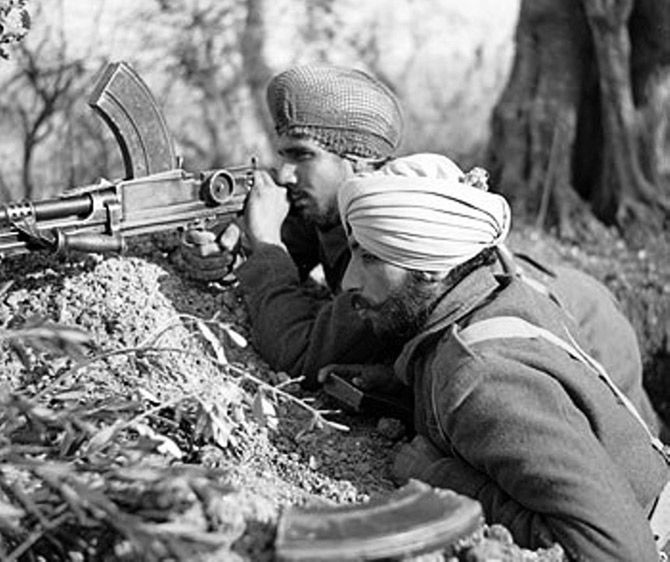
'Whatever the present position of India might be, she is potentially a Great Power... India is the pivot... India is the centre of security in Asia' -- Nehru had said in 1946.
Yet, as you write, India's strategic importance was contained within its immediate borders unlike the influence of the Raj. Why?
The Partition of India and the creation of Pakistan as well as the involution of Burma meant that independent India was no longer capable of projecting its power and influences outside of the subcontinent.
Post-war geography and politics precluded the sort of role that Nehru envisioned as late as 1946.
Today India is an emerging power, what are the top three things it needs to do to become a 'great power' and the 'pivot' for Asian security?
The main priorities would have to be: Economic integration of the subcontinent (including Afghanistan and Myanmar); stabilising our frontiers with Pakistan and China to ensure that we are not perennially pinned down in the subcontinent; and reconnecting ourselves economically and strategically both with East and West Asia.
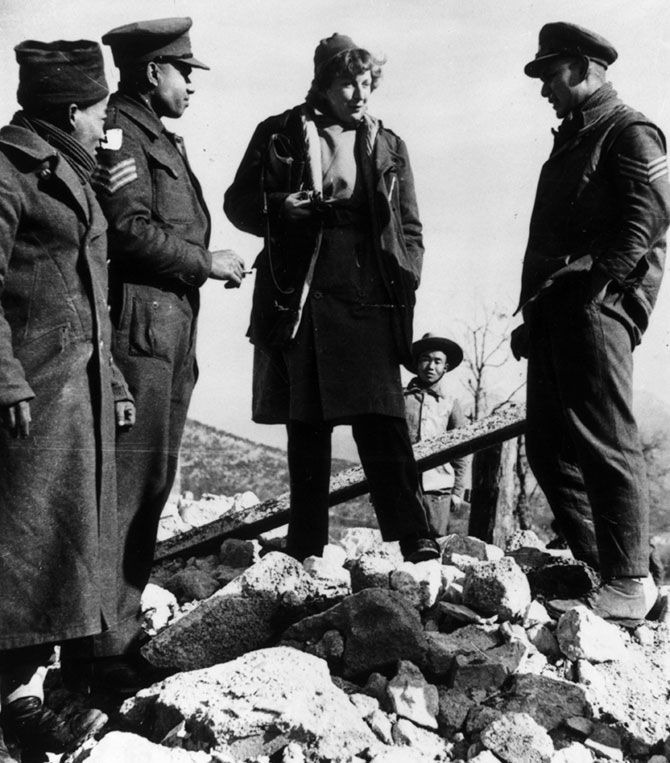
What have been some of the most fascinating accounts, learnings, discoveries you made while writing this book?
I've learnt a great deal while researching and writing this book, though I concede that may only be a statement of my own prior ignorance. The most interesting part was searching and locating letters writing by and to Indian soldiers serving abroad.
Unlike WW1, we have very few surviving letters for this war. Recovering the voice of the soldiers and their families was very satisfying. And I hope social historians will do more with these materials.
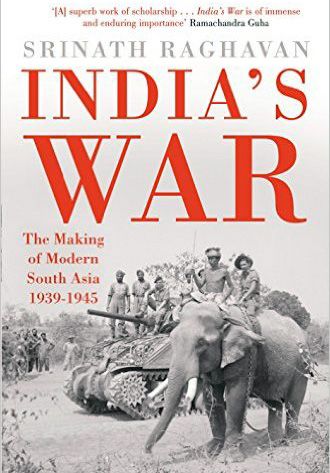 Who/what are the characters or incidents that especially interest you in this account?
Who/what are the characters or incidents that especially interest you in this account?
This is a bit like choosing between children! So, I'll pass.
You served in the Indian Army for 6 years. How have those years shaped you? Why did you leave? What lasting friendships did it provide? What made you join the army?
This is a whole different conversation, in which your readers may have no interest! But I would say that my time in the army was formative in orienting my interests. It has also been very useful in my historical work, at least insofar as I have some grasp of military realities.










